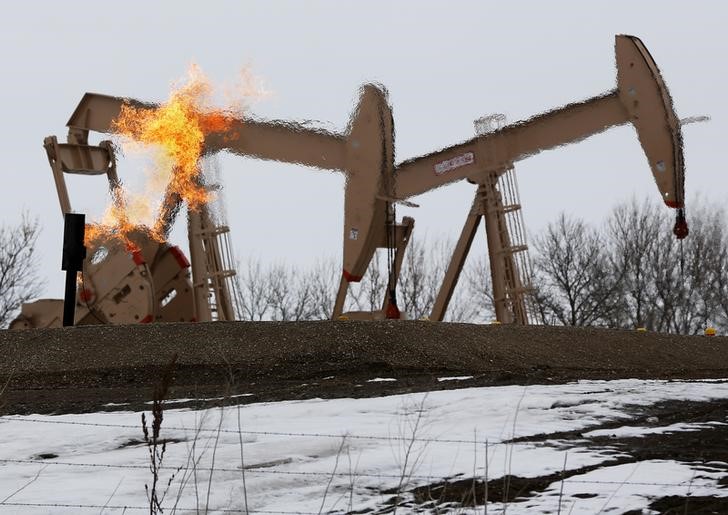By Alex Lawler
LONDON (Reuters) - A global oil glut has been virtually eliminated, according to OPEC figures, thanks in part to an OPEC-led supply cut deal in place since January 2017 and fast-rising global demand.
The deal between the Organization of the Petroleum Exporting Countries and non-OPEC producers led by Russia to cut supplies and erase a global glut has helped oil prices reach $78 a barrel, their highest level since 2014.
In a report on Monday, OPEC said oil inventories in developed nations in March fell to 9 million barrels above the five-year average. That's down from 340 million barrels above the average in January 2017.
"The oil market was underpinned in April by renewed geopolitical issues, tightening product inventories and robust global demand," OPEC said in the report.
"Strong conformity by OPEC and participating non-OPEC nations in terms of production adjustments through the Declaration of Cooperation also continue to support the oil market."
The goal of the supply cut was to reduce the excess in oil stocks to that of the five-year average. But oil ministers have said other metrics should also be considered such as oil industry investment, suggesting they are not in a hurry to ease supply curbs.
As well as OPEC's voluntary cuts, a plunge in Venezuelan oil output due to economic crisis and the United States' departure from a nuclear deal with OPEC member Iran have supported prices.
OPEC signaled it was ready to step in should "geopolitical developments" impact supply.
"OPEC, as always, stands ready to support oil market stability, together with non-OPEC oil producing nations participating in the Declaration of Cooperation," OPEC said.
